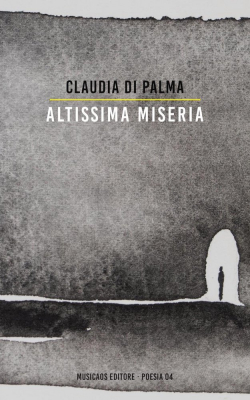Editorial
by Francesca Del Moro
There are many types of heroes: they can be found in mythology, history and art, but also in our daily life. They range from the goddess that Veronica Liga’s rhymes tear from the Greek Pantheon to capture her vulnerability to the aged woman of the poem by Veruska Melappioni, who treats herself to the joy of dance and deals with the approaching death with no less courage than that of a soldier. Two poems choose instead to celebrate the heroism of poets: in memory of Federico García Lorca, executed by Franco’s police during the Spanish civil war, Valentina Meloni depicts a scene in lively colours, imbued with affection and sorrow, whereas in the two weighty excerpts from a broader poem Enea Roversi wishes Pier Paolo Pasolini could come back to raise his voice against the corruption and violence of power once again. Pippa Bacca too was killed because she bravely used her art, with her solitary “wedding” march for peace through several countries; her steps still resound in the poem by M.P. Belli, which surrounds them with a dreamy and legendary atmosphere.
A tired Athena
by Veronica Liga
Athena is tired today.
She takes off her armour.
The walls close up,
the wound opens.
Athena is tired today,
Athena freaks out today...
“If you behave like this, you are lacking
the force – the true one,” –
the owl whispers,
the most faithful friend, –
“One slips down on the bile
while reaching for the top.
It won’t hurt you
to calm down this anxiety:
The immortal enemies
will come back tomorrow...”
The Dancing Queen
by Veruska Melappioni
Heroes are the fighters who confront
death at war. We too are heroes, we old
people who confront death without
bombs and without attacks, without
clamour and without glory.
(Fausto Gianfranceschi)
The cardboard gilds the crown,
emotion on the chick’s head.
The hands offer the invitation and
the arms carry the request.
“Today you will be the dancing queen”.
The gaze wraps up the hesitation
and the unsteady denial.
A crippled twirl precede
a missed bow.
Remembering you (to F.G. Lorca)
by Valentina Meloni
I wonder where you are
today after the heat has melt
the spell of time
and the roar of the shooting
still pierces the clouds
blessed is the peach sky
crimson has dripped on the orange
fields: sangre y recuerdos
on our heads laurels
tremble and wither
the lips whispered poems
your lines like a prayer
and the night has fallen
without a single tear brushing
your bones without even a flower
on the truth’s innocent body.
I wonder where you are
holding in my hands the memory of never
having quieted your green sunrise
of having always loved and known you
in a beat in a sprout
life, poetry always talk about you
Excerpt from “To Pier Paolo Pasolini”
by Enea Roversi
Thirty years of running out of breath
and almost nothing has changed.
If you were here, now, to investigate
among the muddy intrigues
of the power games
you would find the right words
to depict the horror
the mean and cathode-ray horror
of this earsplitting void.
*
New gladiators with golden teeth
crowd the capital city’s streets.
The wind of the Tyrrhenian sea
goes all the way to Rome: the engine
is started for a new red-hot action
to relentlessy film
but there’s a truth
that is not worthless
and has forever stopped
before Ostia’s cross.
Discovering Pippa Bacca
by M.P. Belli
you move ahead shrouded in lily petals
in voiles of flags and embroideries
lye of affections accompanies your walk
a cup of naked hands around bare feet
those of the eternal mother
who leaves the skies to the father and chooses the earth
you stamp your heels on the journey that grows
impresses dust into your soft skin
arabesques of green cities on white signs
a safe-conduct for a common relay race
and along the road you meet ask smile
while your gaze cuts off the leaves
Altissima miseria
by Claudia Di Palma
We may start from the last two lines of the quote from Mariangela Gualtieri’s Caino chosen as an epigraph to approach the work by Claudia Di Palma: “A desire to pray. But I don’t know who nor what anymore”. Claudia’s poems actually take the shape of a prayer that rises from our existence-exile, addressing an unspecified you that at times seems to coincide with the God of the Bible, often quoted either directly or implicitly. But the core of Claudia’s book is most likely the longing for a God, who becomes incarnate in humanity as a whole – and with humanity the poet desires a communion, as a reductio omnium ad unum. You is also the reader who is attracted by a union made of suspension, of distances (but distance is home), of the hesitancy which makes us look into each other’s eyes and welcome mutual differences. We communicate through our skin’s phonemes, while silence allows our cells and bodies to become alphabets. We connect through the smile that makes a communion, through stretched hands that do not touch each other or join to create amplitude. To come together we need to surrender, as suggested by the white flag waving at the beginning of the book and coming full circle at the end in the form of light. Claudia’s language draws from mysticism with words that chase each other poem after poem, lexical ambiguity, figures of speech affecting sounds and etymology which create a continuous tension/invitation to let ourselves go and fuse together. A force clashing with our frailty, with fear, with the war flaring up inside of us, the massacre hidden behind the little word love and the risk of falling down inside ourselves like in an abyss. The union we are pursuing passes through a synthesis of the opposites: amplitude, vastness, eternity on the one side and smallness, misery, transience on the other converge like the shadow which is a shelter-trench tends towards the light of surrender. We live a big life in a small atom and you only need to remove one letter to turn the word monadi (monads) into mondi (worlds), to make the divino mistero (divine mistery) become misero (miserable). The union of all human beings, the we recurring throughout the poems, is called “a plural harmony of singular multitudes”. The dynamics of the opposites take the shape of oxymorons such as “ruthless care” and “highest misery”. With the replacement of one letter, in the invocation that opens the first section Maria is followed by Moria, hinting at Erasmus of Rotterdam and connecting the concepts of death and motherhood, the latter a crucial theme in the book. The mother is the beginning and the end: she is fluid, disangled, the emblem of reception (a body containing another body) but the dead come back to the womb and making love means bordering on consumption. Throughout the book, as well as in the Bible, the loving/creative impulse coexists with images of violence and decay until the extreme synthesis is reached: marciamo di un bellissimo marcire (we rot of a beautiful rotting), where the polysemy of the verb (marciamo means both “we rot” and “we march”) recalls the walk in the previous poem suggesting that existence is nothing but moving towards non-existence (two opposites mentioned elsewhere). Altissima miseria is an ambitious first work that reveals a remarkable cohesion and a mature mastery of poetic language.
ALTISSIMA MISERIA
Claudia Di Palma
Musicaos editore, 2016

